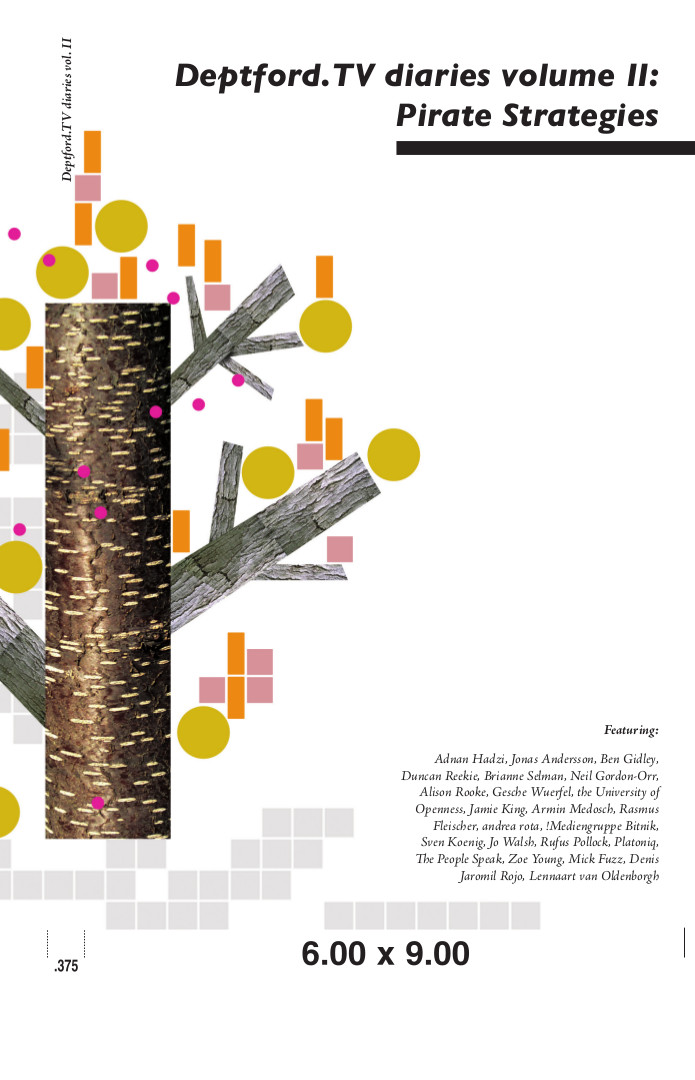Freie Netze. Freies Wissen (2007) [German]
Filed under book | Tags: · commons, copyright, cultural production, network culture

Noch nie war es einfacher, Menschen und ihr Wissen in Form von Texten, Bildern oder Tönen zusammenzubringen und zu vernetzen. Freie Netze sind der Versuch, dieses Potential von Internet und PC auszuschöpfen und möglichst alle Menschen daran teilhaben zu lassen.
FREIES WISSEN. Der Zugang zu digitalen Netzen bedeutet noch nicht den Zugang zu Inhalten. Ein freier Zugang zu Wissen ist aber die Basis für Innovation und Emanzipation. Den neuen Möglichkeiten für freien Zugang zu Wissen stehen neue und alte, soziale und rechtliche Barrieren gegenüber.
Von siebzehn Autorinnen und Autoren werden die verschiedenen Anwendungsbereiche von Freien Netzen und Freiem Wissen dargestellt. In jedem der neun Kapitel kommen in Interviews Menschen wie Lawrence Lessig oder Richard Stallman zu Wort, die mit dem Thema als ExpertInnen, PionierInnen oder unmittelbar Betroffene zu tun hatten oder haben. Am Ende jedes Kapitels finden sich konkrete Projektvorschläge zur Umsetzung auf lokaler Ebene als Beitrag für das Linzer Kulturhauptstadtjahr 2009.
Inhaltsverzeichnis:
Intro
Kapitel 01: Freiheit lieg in der Luft
Kapitel 02: Kreativität in Fesseln
Kapitel 03: Offene Lehre ist freie Lehre ist gute Lehre
Kapitel 04: Freie Software für freie BürgerInnen
Kapitel 05: Zurück in die Zukunft des Internet
Kapitel 06: Ars Electronica Activa
Kapitel 07: Freiheit der Kunst durch freie Werke?
Kapitel 08: Digitale Freiheit für Forschung und ForscherInnen
Kapitel 09: Die Voraussetzungen der Freiheit
Statt eines Glossars: Digitale Freiheit von A bis Z
2007 Wien Echo media verlag ges.m.b.h.
ISBN 3-901761-64-0
Herausgeber: Leonhard Dobusch, Christian Forsterleitner

Inhalt ist unter einer Creative Commons-Lizenz lizenziert.
Mehr Info: http://www.freienetze.at
Comment (0)Deptford.TV Diaries II: Pirate Strategies (2008)
Filed under book | Tags: · commons, media, tactical media

“This reader problematises the notion of ‘tactical media’. As McKenzie Wark and others stated already in 2003: ‘can tactical media anticipate, rather than be merely reactive?’ By calling for a strategic approach to media production and distribution, the intention is to overcome some of the structural paradoxes inherent to ‘alternative’ or ‘oppositional’ media, especially since much of the free / open culture dissemination on the Internet has become the new “mainstream” in itself (think of the casual defiance of copyright played out relentlessly and on a mass scale with file-sharing, social networking, and everyday media consumption).
The book is a compilation of theoretical underpinnings, local narratives and written documentation not only of the Deptford.TV project but of phenomena relating to this new situation of ‘strategic media’.”
Keywords: alternative media, strategic media, documentary filmmaking, piracy, file-sharing, digitization, media distribution, local regeneration, urban change.
Steal This Film, YouTube, copyleft, object code, Pirate Bay, Lewisham, Guanxi, Lawrence Lessig, Critical Art Ensemble, Facebook, Pepys estate, Armin Medosch, remix culture, Found footage, Linux, Node.London, Debian Social Contract, Jonas Andersson, Cory Doctorow
Publisher OWN, SPC Media Lab, Deckspace, London, 2008
Creative Commons BY-SA 3.0 License
ISBN 9781906496111
171 pages
Public Netbase: Non Stop Future. New practices in Art and Media (2008)
Filed under book | Tags: · art, commons, networks, new media, public domain, surveillance, tactical media

The publication is both a review of the pioneer days from the perspective of Public Netbase as well as an outlook into the future of art and culture in digital networks. It provides an overview of a critical information economy discourse, insights into Tactical Media strategies and a critique of the loss of public domain and the commons. Based on the extensive archives of Public Netbase, the book features some of the most spectacular and controversial art projects and interventions from 1994 to 2006. It also offers historical documents and manifestos critical of commercialization and control society issues, together with a view into the digital world of tomorrow.
Sections: Discourse; New Art Practices; Tactical Media; Digital Mediaculture, Networking and Participation; Public Netbase; World-information.org
Editors: Branka Ćurčić, Zoran Pantelić / New Media Center_kuda.org
Editorial team: Konrad Becker, Branka Ćurčić, Zoran Pantelić, Felix Stalder, Martin Wassermair
Publisher Revolver – Archiv für aktuelle Kunst, 2008
ISBN 9783865884558
View online (HTML articles)
Comment (0)
